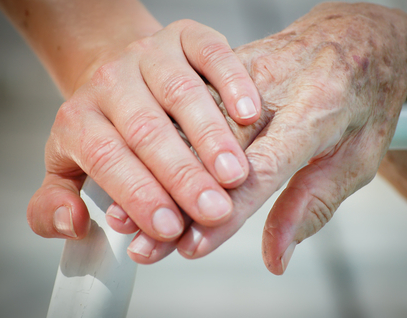

Medical advances such as new drugs, imaging devices, operating room technology and others are coming rapidly and greatly expanding what can be done for patients. But concurrently it also seems to many that medicine is so technologically focused that the age old art of humanism has become a legend. What the doctor needs to remember is that you are a human with the needs of a human; the doctor needs humanism.
The University of Maryland Center for Integrative Medicine hosted a “Health and Wellness Conference” recently to celebrate the Center’s 20th anniversary. One plenary session was given by Thomas Scalea, MD, professor and director of the R Adams Cowley Shock Trauma Center at the University of Maryland Medical Center inBaltimore. TheShockTraumaCenter is arguably the best trauma center in the country if not the world. It admits only those 3-5% of trauma patients with the most extensive injury yet survival consistently exceeds 95-97%. Credit this to the State’s emergency transportation system and the Shock Trauma Center’s exquisite teamwork, the well trained staff and the best of technology. As Dr. Scalea noted, the Shock Trauma Center is perhaps the zenith of technologic prowess.
But, he reminded the audience that the patient also needs the provider to be humanistic. He gave some examples. Here are some that I remember from his talk, sprinkled occasionally with my own thoughts.
When you enter the room, sit down and talk with your patient. Be at their eye level, not an imposing figure hovering over the bed.
Speak to the patient in clear English; not in medical speak. Medical speak is for your convenience and is a way of obfuscating but not communicating.
Expect to repeat what you say tomorrow and again the next day again; your patient needs to hear it repeatedly. Don’t be annoyed they forgot it all by tomorrow morning.
If you have bad news to deliver hold the patient’s hand. Touch has a lot of power. I would add here, when you must give bad news, be clear. The patient has already guessed his situation so don’t try to avoid the truth and be sure to then immediately explain what you propose as next steps. As a medical oncologist, I learned that this was absolutely essential. Don’t let this part wait for another day. Your patient needs to hear it right now so they can begin to focus not just on the bad news but on the hope of a new treatment or whatever plans you propose for the future, even if that means hospice.
When you visit your patient don’t just talk, listen. Listen hard and long. Dr. Scalea described a trainee getting behind him and looking across his shoulder at the patient. When Dr. Scalea asked why he took that position, the resident responded that he wanted to see what Dr. Scalea saw. “I’m not looking, I’m listening” was the answer. Of course, “listening” also includes observing the patient’s body language including facial movements.
Be sure what you tell the patient or family is clear. It needs to be in direct every day speech. He told of going to tell a mother that her son had died. The resident who had been working with him asked if he could be the one to deliver the bad news. “Sure, I’ll just sit to the side.” The resident used a lot of words about how injured her son had been, how they had tried to save him in the operating room, etc. and then stood up to leave. “Wait,” said Dr. Scalea. He went over, sat down, and holding her two hands said, “Do you realize that your son has died?” She had not. It is critical to be clear.
He described a scene at a famous hospital. The world renowned doctor and his retinue came into the patient’s room. He explained to the man that he needed a heart valve replacement. The patient thanked him and said he needed to talk to his doctor before agreeing to the surgery. The expert was clearly annoyed that his word was not sufficient. “What is your doctor’s name?” “Dr. Hamilton.” “What is his phone number?” “I don’t know.” “Well how can I call him?” the physician sort of growled. “Well he’s right here in the room – right over there.” He was the third year medical student, the only one on the team that until now had taken the time to really talk to the patient. The expert and his retinue left. The student remained behind. The surgery was soon scheduled for the next day.
Finally I would add that being a doctor is a privilege. We are given that privilege as a result of our medical school and residency training and our willingness to put patient care above everything else. It is a special privilege. We need to always remember that it is a privilege given to us by the patient – each and every time we have an encounter. It is a privilege that the patient can chose to retract.
photo; tepic /shutterstock
Note: You can find the Center for Integrative Medicine on Facebook at http://on.fb.me/HWRPKp . There is more about the delivery of health care in my new book The Future of Health Care Delivery-Why It Must Change and How It Will Affect You.








